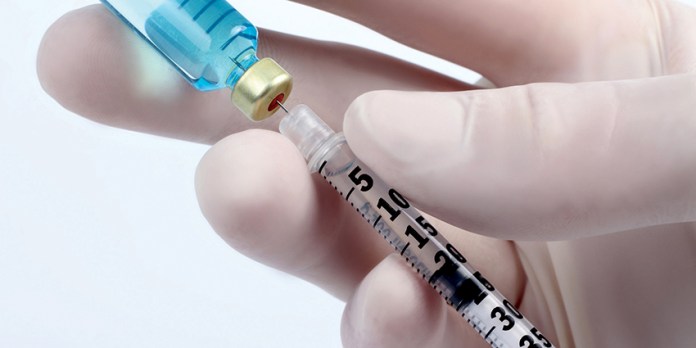Health organisations have started to plan a campaign of use for a vaccine against the deadly ebola disease.
The work is being done by the World Health Organization (WHO), its partners and affected countries after the Ebola outbreak that struck Guinea, Liberia, and Sierra Leone in 2014 prompted the search for a vaccine. Although there has been more than one promising candidate, the vesicular stomatitis virus-ebola virus (VSV-EBOV) vaccine was selected for a Phase III trial in Guinea and Sierra Leone. Dr Marie-Pierre Preziosi, Medical Officer, Initiative for Vaccine Research, WHO, said: “We can now look ahead and say yes, there will most likely be an Ebola vaccine on the market. The question is when? “At present, we believe it will take more than one to two years for this to happen. Once a product is licensed we should be prepared to move swiftly and with clear operating procedures and agreement between countries worldwide.”
To plan for its use, WHO convened a Global Ebola Vaccine Implementation Team, which includes partner organisations’ technical experts and representatives from Guinea, Liberia and Sierra Leone and countries previously affected by an Ebola outbreak, Democratic Republic of Congo, Sudan and Uganda. The strategy envisages using the vaccine as part of the response to an outbreak, beginning with protection of high-risk individuals, primarily health workers and frontline workers but also the likes of cleaners and workers involved in burial of the dead. The second stage will be to protect the circle of people around someone sick with Ebola, including friends and family.
Dr Dennis Mark Child Health EPI Manager, Ministry of Health and Sanitation, Sierra Leone, said: “The vaccine will only be useful for cutting short an outbreak if we identify any cases that occur promptly and then swing into action. Above all, we must stay alert and do superb surveillance. “It is exciting to have an effective vaccine in the pipeline but knowledge about Ebola is evolving. Early in Sierra Leone’s outbreak, we believed that the virus remained in semen for no more than three months among male survivors of Ebola. Now it appears the virus can stay in the semen for as long as a year. This finding has an impact on how we will use the vaccine to protect the sexual partners of people who recovered from Ebola.
“The vaccines that have been tested tend to make some people feel quite sick for 1-2 days with fever, aches and fatigue. This could affect acceptability. We already have problems with vaccine hesitancy in our country. “But something interesting happened during the outbreak. There was one local man who volunteered to participate in the trial of the vaccine. Afterwards, his wife was in contact with a person who was sick with Ebola. She did not want to take the vaccine – until he came forward publicly in favour of it. So now we believe that former trial participants can serve as champions for the new vaccine.” Dr Jane Seward, Senior Adviser, Sierra Leone Trials to introduce a vaccine against Ebola, with the United States Centers for Disease Control and Prevention, said: “People should be aware that in an emergency, we could already use this vaccine, under a clinical or research trial protocol and emergency use licensure. This should be reassuring to the public. “But we also need to recognise that bringing a vaccine to market usually takes at least seven years. This vaccine is being pushed forward under emergency conditions, but we still have quite a way to go.
“For now, we know that based on preliminary results from the Guinea trial, the VSV-EBOV vaccine is likely to provide good short-term protection. It will be useful to have information about longer-term protection, which will be needed to protect groups at risk, such as healthcare workers, before they are ever exposed to Ebola. “Also, there are other vaccines in clinical trials that may complete testing and be licensed for use in the future. That is to be hoped for.”




















